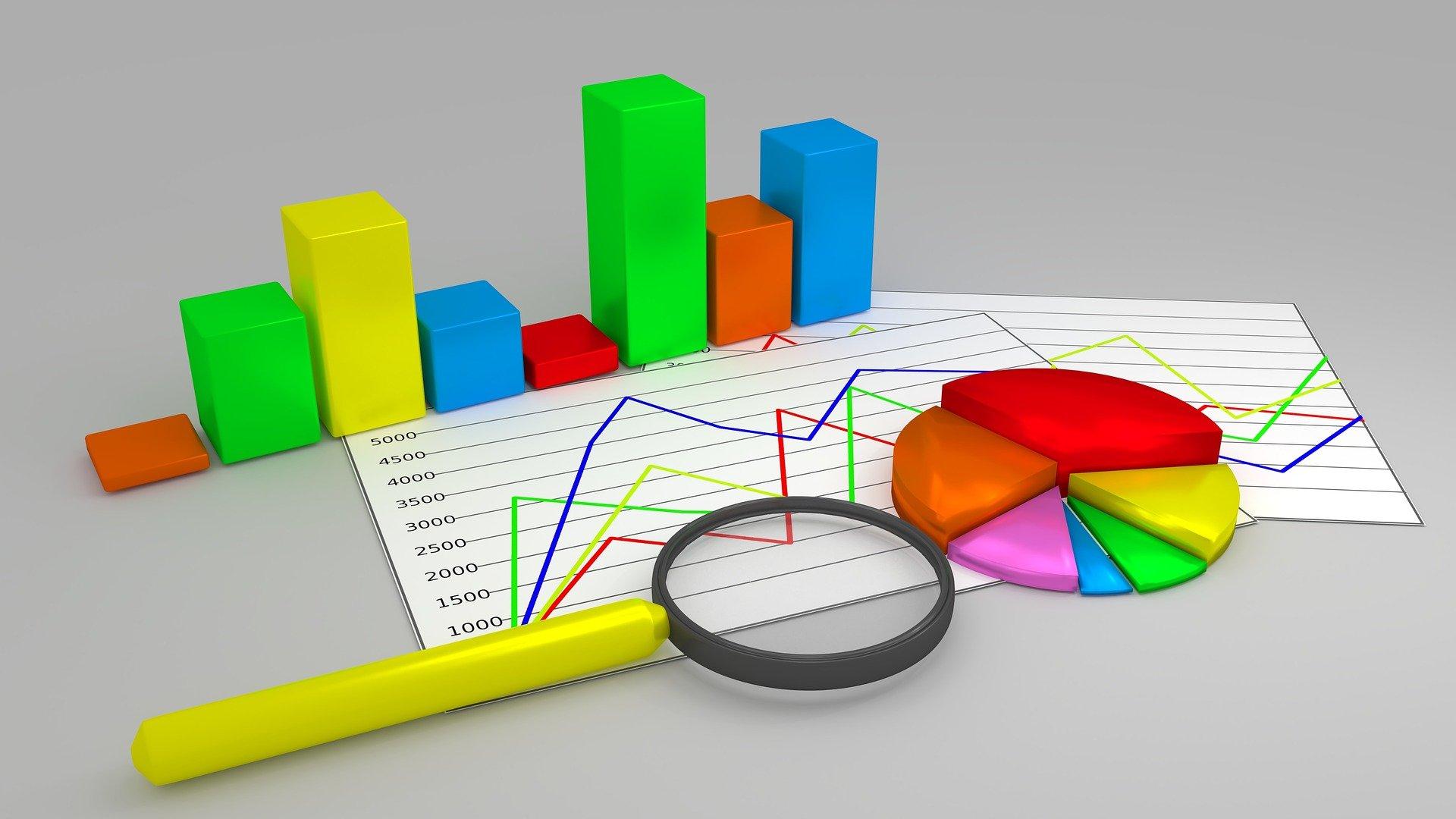
KGV, KBV, KUV – Der Kennzahlenwahnsinn
Inhalt Puh, Börse ist doch nicht „e wie einfach“ Das KGV, KBV, KUV und wie die ganzen Kennzahlen heißen, ist für jeden Börsenneuling

Why does the price of a share change? There are many answers to this question, as various factors can influence the share price. We have taken a closer look at all of them in this article.
There are a variety of reasons why share prices can change and deviate from the foreseeable price. On the one hand, there are reasons that are intrinsic to the share, such as earnings or dividends, and on the other hand, there are extrinsic reasons, such as a change in the market's expectation of the performance of the respective share.
In order to get to know both the intrinsic and extrinsic factors, we have listed and explained 12 of these factors in the following article. In this way, you can build up sound knowledge in order to make more targeted decisions regarding your portfolio in the future.
Economic conditions play a very elementary role in explaining the course of a share price. For example, when economic data, such as the year-end report, is published, it can influence share prices by affecting investors' expectations. Factors such as the amount of money available to invest in shares, the interest rate at which companies can borrow money and how many people sell shares all influence share prices and are heavily dependent on the economic conditions of the period. This is also an indication that share prices do not always reflect the "true" value of a company, but that outside factors also play a major role here.
The share price usually reacts very quickly to news concerning the company. If there are positive events concerning the company, the share price rises; if there are negative events, the share price usually falls. There is a similar phenomenon with regard to company announcements. If interest in a company increases due to an announcement, more people buy the share and its price rises. If interest wanes and shares held are sold again, the share price falls.

For example, if a government issues new regulations and rules for certain industries, these can also have an impact on the share price. An example of this would be if an industry has to use a new working method due to, for example, climate protection regulations, which can change the availability or the price of this product. Based on this, changes in the share price occur, which are relatively small for some companies and can have a significant impact on other share prices. It is important to remember that share prices are dependent on many other factors. However, when considering and analysing a stock, particular attention should be paid to the regulations that could affect a company's performance. Since this is a constant process of change, it is important to keep up and to always stay up to date through attentive research.
Political factors can play a fundamental role in changing share prices. Political events such as elections or referendums can lead to dramatic changes in share prices. The external perception of a company can also be influenced by political factors. For example, if there is political instability in a country, a company's share prices may fall even though the company's performance does not change. An uncertain political environment can also cause investors to sell their shares, which would also cause the company's share price to fall. A possible change of government can also lead to new regulations being introduced, which can also lead to a change in the share price, as discussed earlier.
When valuing a company, it is important to look at both company performance and company profits. Both of these factors can have a huge impact on the share price. For example, if a company performs poorly and does not deliver the expected performance, there is a high probability that investors will sell their shares; the same phenomenon can be observed in reverse. When a company publishes its earnings, this can also have an impact on companies that publish their earnings later, as investment funds often sell stocks that have negative earnings reports and buy stocks of companies that have positive earnings reports.
However, it is not always easy to see which stocks are doing well and which are not. A company can achieve good profits and yet the share price falls because there are competitors that perform even better. Similarly, a company may have low profits, but the share price still rises because investors believe that the stock has good growth potential.
The stock market is usually sensitive to inflation because inflation affects stock prices by changing the amount of money people are willing to spend on goods and services. When prices rise, the value of a company's shares may fall. Conversely, when prices fall, the value of a company's shares may increase.
An obvious factor that nevertheless has an additional facet. On the one hand, the price of a share falls when the available supply is greater because more shares are competing for buyers. Conversely, the price of a share rises when the available supply is lower because fewer shares are competing for buyers.
Investor sentiment mainly influences inexperienced investors and day traders. However, it is also important for other investors to understand the mechanism behind it. When investors are optimistic about a company's future, they are more likely to buy its shares. Conversely, investors who are pessimistic about a company's prospects are less likely to buy its shares. The impact of investor sentiment on share prices is often referred to as the "sentiment effect". The sentiment effect can be amplified by technical indicators, i.e. statistical measures of a share's price performance. If these indicators show positive momentum, the positive investor sentiment can lead to more people investing in the share, which causes prices to rise further. If the dynamics are negative, the negative investor sentiment can lead to more people dumping the share, which causes the price to fall further.
Insider leaks usually happen very rarely, but when they do, they can have a significant impact on share prices. Often, insider leaks occur when a company's leaders tell friends or family about impending news and it somehow gets out to the public. Insider leaks can result in a "flash crash", i.e. a rapid drop in the share price. This happens because traders now rush to sell the shares before the news reaches the general public. Often, insider leaks lead to mostly chaotic conditions that can even have repercussions for the entire industry.

News can affect share prices in several ways. For example, if there are rumours of a recession, share prices may fall because investors believe that the company's profits will be lower. Conversely, share prices can rise when the economy is doing well. Other factors that can affect share prices are government actions, such as a tax increase or decrease, or international events, such as a war.
Financial and stock analysts play a major role in the financial world. They sometimes have more influence on share prices than one might imagine. When an analyst makes a forecast for a company, it becomes public knowledge and other investors will comment on whether or not they believe that forecast. Since analysts usually buy shares based on their own expectations and assessments, rather than valuing them based on objective factors such as future earnings, their assessments can easily become self-fulfilling prophecies.
In a recession, share prices generally fall and it usually takes longer for them to recover than it would if the economy were growing. This is because when the economy goes into recession, businesses and consumers cut back on spending. This leads to a decline in economic activity, which in turn can cause companies to lay off workers or cut production. This can then lead to a general decline in share prices as investors have to sell assets that they see as less valuable.
In summary, the factors that lead to changes in share prices are very complex and diverse, so diverse that it is virtually impossible to explain them in full. However, there are some key factors, such as economic indicators, corporate performance and global events.
If you can understand and apply these factors, it should give you a clear advantage when it comes to predicting share prices. It is always important to keep up to date and monitor market events in order to make targeted and informed decisions.
If you would like to discover more dividend stocks or ETFs, you are welcome to use our Dividend App. myDividends24 use. Here you get access to over 2000 stocks and ETFs and can even create a portfolio and add the stocks you want. Here you can find more details for this. Download now free of charge and test it for 7 days.

Inhalt Puh, Börse ist doch nicht „e wie einfach“ Das KGV, KBV, KUV und wie die ganzen Kennzahlen heißen, ist für jeden Börsenneuling

Inhalt ist eine Anlagestrategie, bei der Anleger Aktien von Unternehmen kaufen, die regelmäßige Dividendenzahlungen ausschütten. Das Ziel dieser Strategie ist es, ein regelmäßiges

Inhalt Viele Anleger fragen sich ständig, warum Aktien fallen, nachdem die Ergebnisberichte der Unternehmen veröffentlicht wurden, besonders, wenn die Entwicklung laut des Berichts
© 2023 mydividends24.de